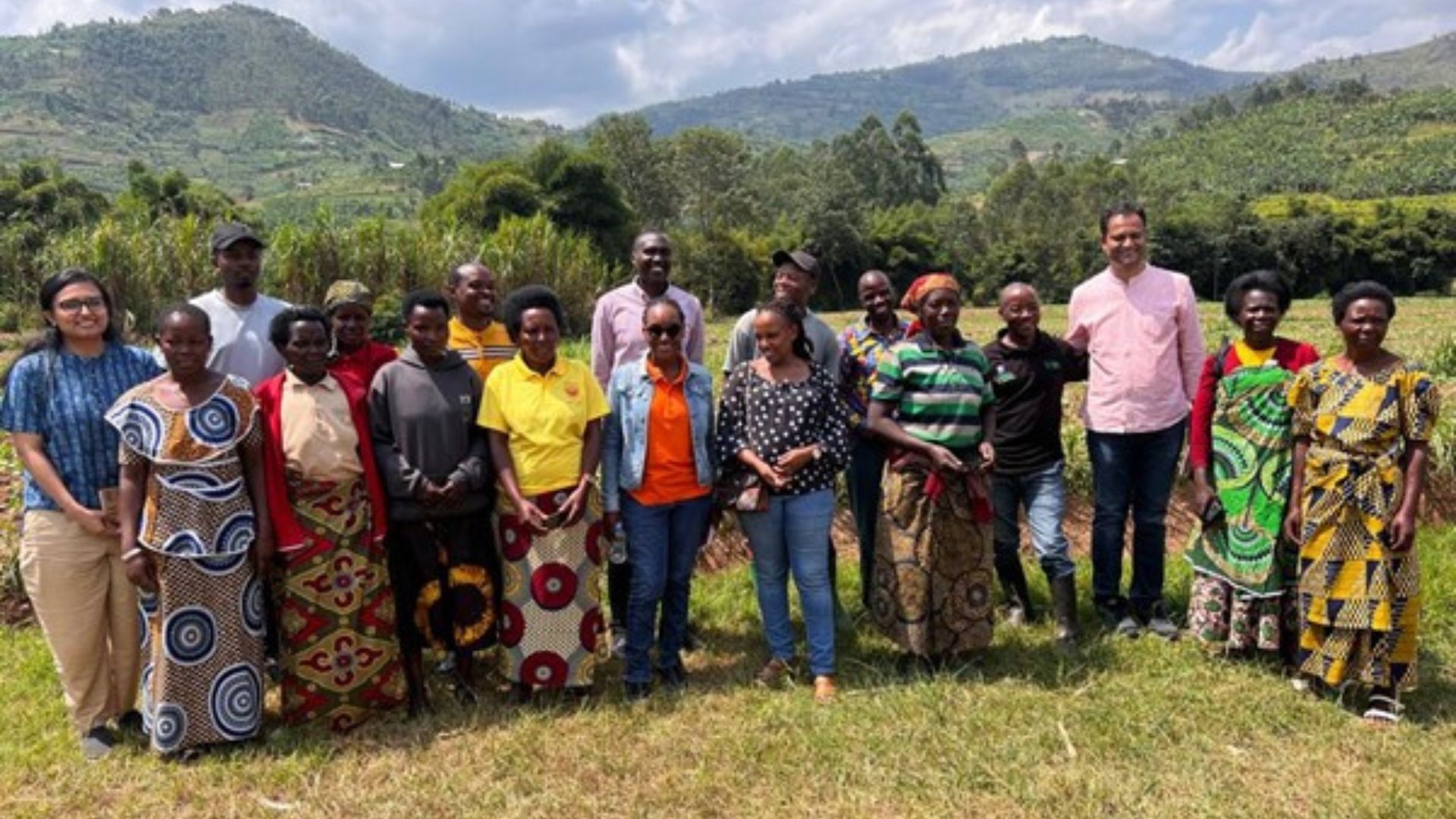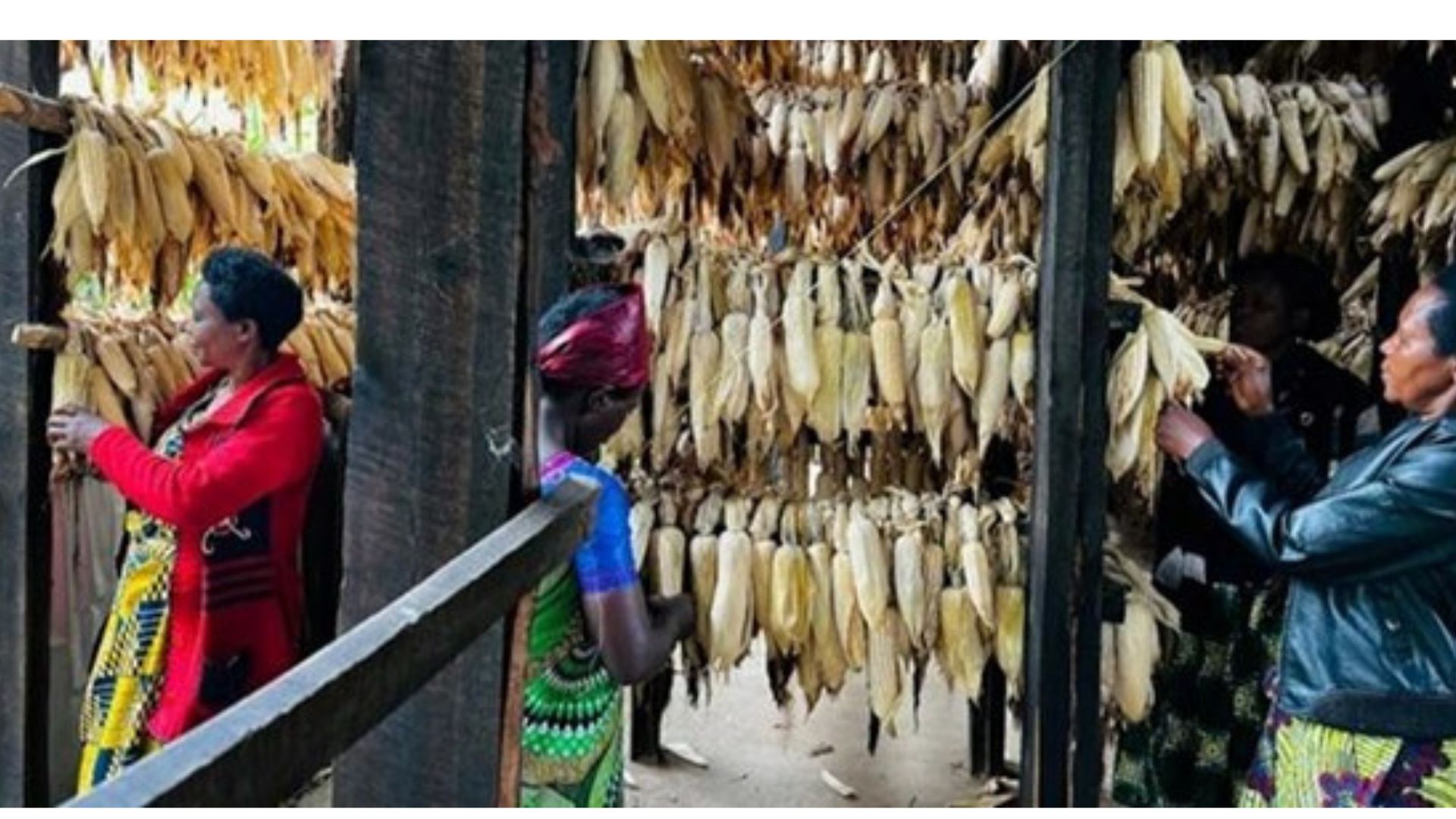How a Rwandan Cooperative Transformed Its Maize Sourcing Strategy and Empowered Women Farmers
By Aseema Amol Sulakhe, Diewertje Hendriks
Nested in the hills of Northern Rwanda, the farmer cooperative ‘Icyerekezo 20-31 TABA’, meaning ‘Vision 2031’, stands as a prime example of how tailored support can lead to success in value chain development.

AIF, which began its impactful journey as a food manufacturer in 2016, needed 30,000 MT of maize annually to meet its production demands. However, by 2021, only about 50% of this maize was sourced locally from cooperatives, with the rest imported or bought from aggregators due to quality issues with maize sourced from cooperatives not meeting its stringent standards (< 5% aflatoxin), and the risk of side-selling.
Recognising the need for a more sustainable solution, AIF partnered with IDH’s Business Analytics team to identify core challenges and develop pathways to source 100% of its maize from local cooperatives.
Strategic interventions
The inclusive business analysis identified 3 core areas for AIF to look at:
- Sourcing costs: comparing costs per unit from aggregators and cooperatives
- Investment potential: Identifying opportunities for strategic investments in cooperative development
- Financial challenges: Addressing the working capital needs of cooperatives and their farmers
To support this strategy, the ‘Invest in Cooperative Sourcing for Maize in Rwanda’ (ICS) project was launched, aiming to achieve 100% local cooperative sourcing for AIF.
Over three years, 9 agronomy-trained coaches worked with 15 cooperatives, providing training in agronomy, gender, financial management, and governance improving the cooperatives professionalism and productivity.
Additionally, exchange visits to more established cooperatives have provided valuable learning opportunities.
Today, 44 cooperatives are part of the ICS program, benefiting from advance payments, guaranteed contracts with AIF, and improved communication and synergy across the cooperatives due to the cooperative coaches.
AIF now proudly sources 100% of its maize from local Rwandan cooperatives.

Icyerekezo 20-31 TABA has evolved from a member-oriented cooperative into a mature organisation with audited financials, digitised member data.
With 549 members—245 women and 304 men—the cooperative now distributes dividends to its farmer members and supports a special women's committee focused on social and financial development.
Women in the cooperative have found their voice and collectively have saved nearly 2 million Rwf, almost doubling their initial capital. These funds provide loans for other income-generating activities, such as poultry farming.
According to Olive Mukahirwa, the cooperative's accountant, "the engagement has awakened their minds."
Looking to the future
With support from the ICS project, the graduation criteria and the cooperative coaches, the cooperative created a 5-year strategic plan to outline their goals and future opportunities.
They plan to reduce farm-gate rejection rate below 3% and pay farmers promptly within 7-10 days of procurement.
Additionally, the cooperative now operates an agri-input shop, offering credit and loans for members' financial needs. These efforts have fostered a 100% member loyalty in selling their maize produce to the cooperative.
Looking ahead, the cooperative aims to buy maize from nearby farmers and smaller cooperatives, to add value before selling it to AIF.
Despite facing challenges such as a shortage of post-harvest infrastructure and the need for mechanised equipment, Mr. Theogene remains optimistic. "We are looking for partners to sponsor this," he says, hopeful for the future and committed to achieving ‘Vision 2031’ for Icyerekezo 20-31 TABA.
Related Resources



Your Insights Hub journey has just started
Sign up here for access to updates - and industry insights and innovation - from the Smallholder Inclusive Business Newsletter.